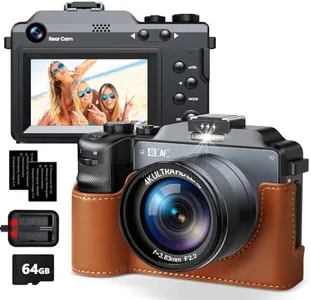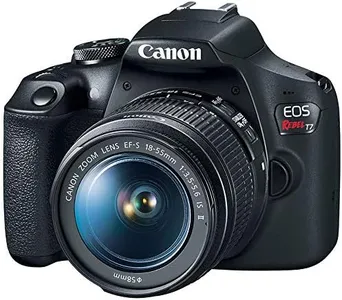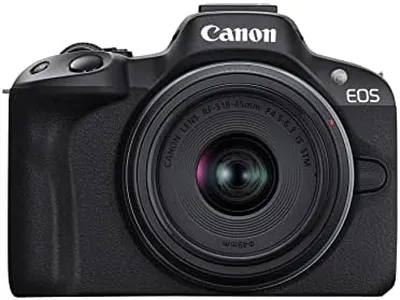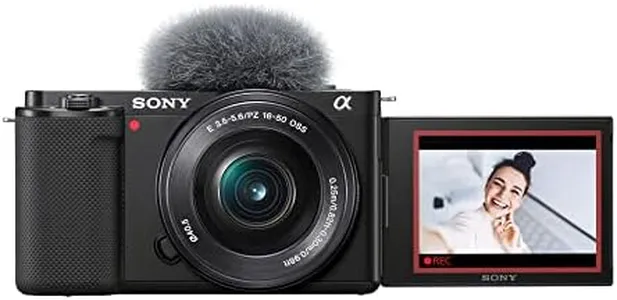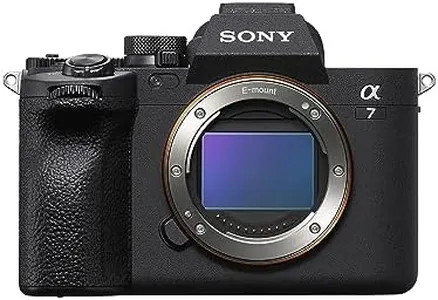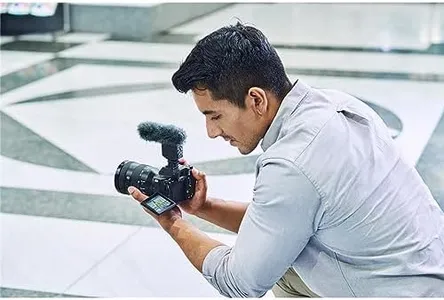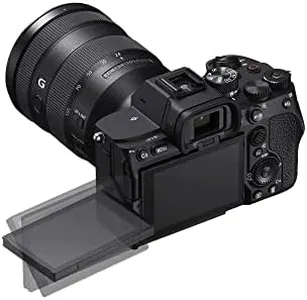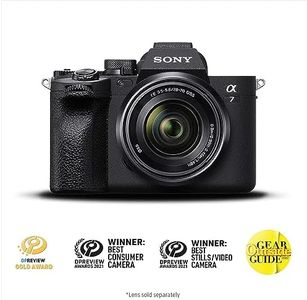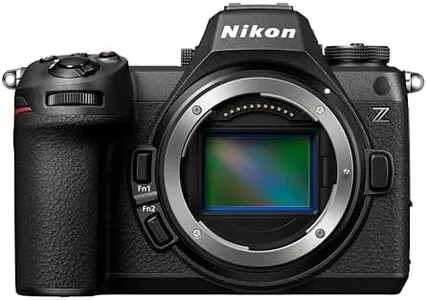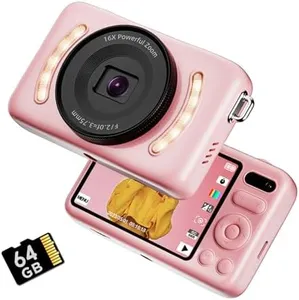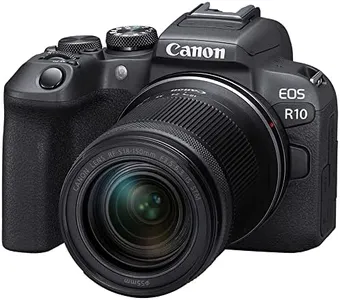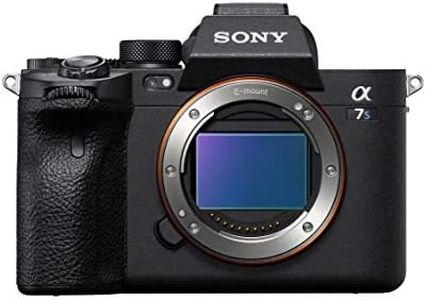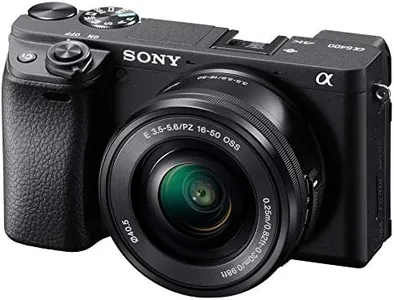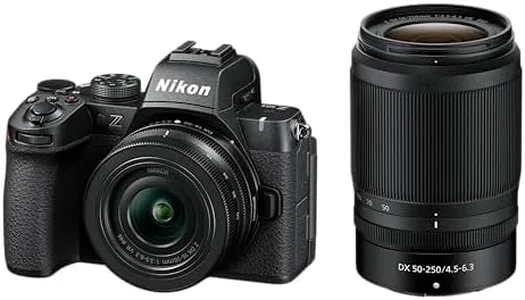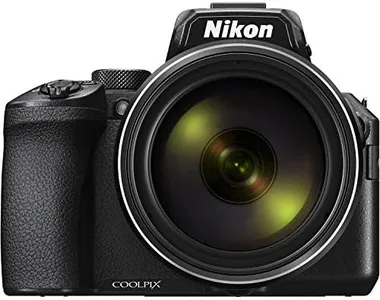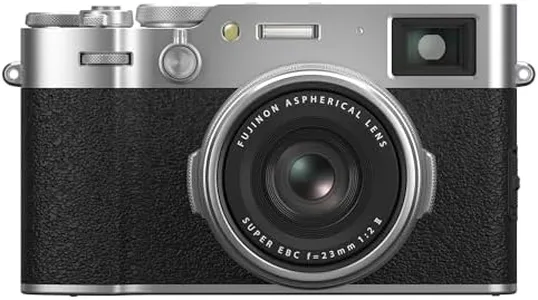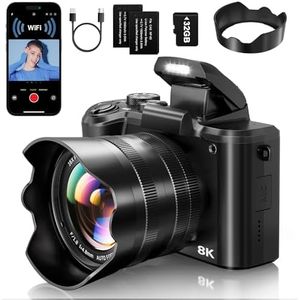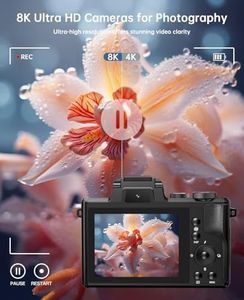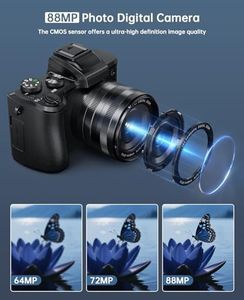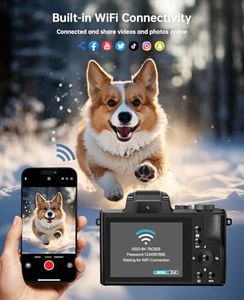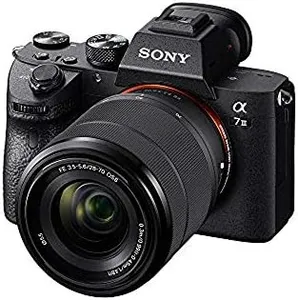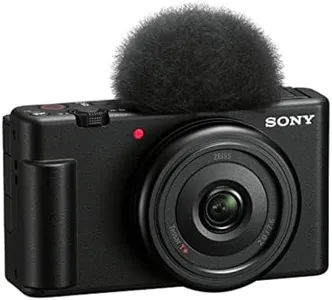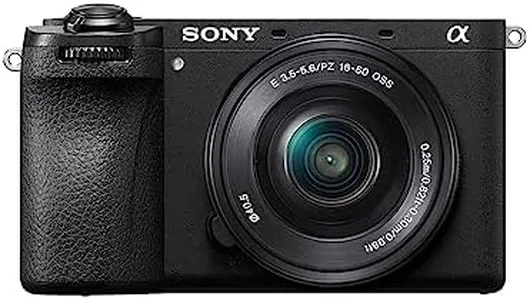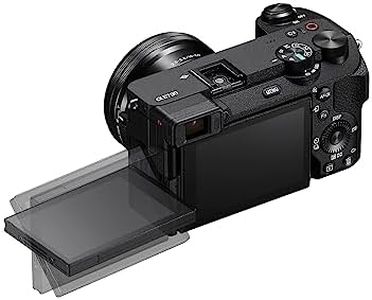10 Best Camera For Real Estate Photography 2025 in the United States
Winner
9.8 score
Canon EOS Rebel T7 DSLR Camera with 18-55mm Lens | Built-in Wi-Fi | 24.1 MP CMOS Sensor | DIGIC 4+ Image Processor and Full HD Videos
Canon EOS Rebel T7 DSLR Camera with 18-55mm Lens | Built-in Wi-Fi | 24.1 MP CMOS Sensor | DIGIC 4+ Image Processor and Full HD Videos
Chosen by 1106 this week
Canon EOS R50 Mirrorless Camera RF-S18-45mm F4.5-6.3 is STM Lens Kit, 24.2 Megapixel CMOS (APS-C) Sensor, 4K Video, Hybrid Camera, Photo and Video, Vlogging, Content Creator, RF Mount, Black
Canon EOS R50 Mirrorless Camera RF-S18-45mm F4.5-6.3 is STM Lens Kit, 24.2 Megapixel CMOS (APS-C) Sensor, 4K Video, Hybrid Camera, Photo and Video, Vlogging, Content Creator, RF Mount, Black
Sony Alpha ZV-E10 - APS-C Interchangeable Lens Mirrorless Vlog Camera Kit - Black
Sony Alpha ZV-E10 - APS-C Interchangeable Lens Mirrorless Vlog Camera Kit - Black
Sony Alpha 7 IV Full-frame Mirrorless Interchangeable Lens Camera
Sony Alpha 7 IV Full-frame Mirrorless Interchangeable Lens Camera
Nikon Z6 III | Full-Frame mirrorless Stills/Video Camera with 6K/60p Internal RAW Recording | Nikon USA Model
Nikon Z6 III | Full-Frame mirrorless Stills/Video Camera with 6K/60p Internal RAW Recording | Nikon USA Model
Fujifilm X100VI Digital Camera - Silver
Fujifilm X100VI Digital Camera - Silver
Sony a7 III (ILCEM3K/B) Full-frame Mirrorless Interchangeable-Lens Camera with 28-70mm Lens with 3-Inch LCD, Black
Sony a7 III (ILCEM3K/B) Full-frame Mirrorless Interchangeable-Lens Camera with 28-70mm Lens with 3-Inch LCD, Black
Sony ZV-1F Vlog Camera for Content Creators and Vloggers Black
Sony ZV-1F Vlog Camera for Content Creators and Vloggers Black
7.7 score
Sony Alpha 6700 – APS-C Interchangeable Lens Camera with 26 MP Sensor, 4K Video, AI-Based Subject Recognition, Log Shooting, LUT Handling and Vlog Friendly Functions and 16-50mm Zoom Lens
Sony Alpha 6700 – APS-C Interchangeable Lens Camera with 26 MP Sensor, 4K Video, AI-Based Subject Recognition, Log Shooting, LUT Handling and Vlog Friendly Functions and 16-50mm Zoom Lens
Our technology thoroughly searches through the online shopping world, reviewing hundreds of sites. We then process and analyze this information, updating in real-time to bring you the latest top-rated products. This way, you always get the best and most current options available.

Our Top Picks
Winner
Canon EOS Rebel T7 DSLR Camera with 18-55mm Lens | Built-in Wi-Fi | 24.1 MP CMOS Sensor | DIGIC 4+ Image Processor and Full HD Videos
Most important from
7894 reviews
The Canon EOS Rebel T7 is a solid choice for real estate photography, boasting a 24.1 MP APS-C CMOS sensor that delivers good image quality and detail. With a range sensitivity from ISO 100 to 6400 (expandable to 12800), it performs reasonably well in various lighting conditions, a significant advantage when shooting different properties. The 18-55mm lens provides versatility for wide-angle shots, which are critical in real estate to capture the entirety of a room or property exterior. Additionally, the built-in image stabilization helps reduce blurriness during handheld shooting, enhancing image clarity.
On the downside, while the T7 features a 9-point autofocus system, it may not be as quick or precise as higher-end models with more advanced autofocus technologies. The continuous shooting speed of 3 frames per second can be limiting for fast-paced situations. The optical viewfinder covers only about 95% of the frame, which may lead to slight cropping of the final image. Furthermore, the camera lacks advanced weather sealing, which could be a concern if you're shooting in less-than-ideal conditions.
The built-in Wi-Fi and NFC make it easy to share images directly to your devices, a handy feature for real estate agents who need to quickly upload photos to listings. The camera’s function as a webcam adds some versatility, particularly in today's remote working environment. However, the fixed LCD screen can be a hindrance for creative angles or low-level shots. The Canon EOS Rebel T7 is a capable entry-level DSLR that meets the basic needs of real estate photographers, especially those starting out. It offers a good balance of features and performance, though it may not satisfy the requirements of serious professionals seeking speed and specialized capabilities.
Most important from
7894 reviews
Canon EOS R50 Mirrorless Camera RF-S18-45mm F4.5-6.3 is STM Lens Kit, 24.2 Megapixel CMOS (APS-C) Sensor, 4K Video, Hybrid Camera, Photo and Video, Vlogging, Content Creator, RF Mount, Black
Most important from
1283 reviews
The Canon EOS R50 Mirrorless Camera is a solid choice for real estate photography, offering a 24.2 Megapixel CMOS (APS-C) sensor that ensures high-resolution images with great detail. This is crucial for capturing the intricacies of interior and exterior property shots. The DIGIC X processor further enhances image quality, providing vibrant and clear photos. The camera's advanced autofocus system, with 651 AF zones and deep learning technology, helps track subjects like people and objects, making it easy to keep rooms and architectural features in sharp focus.
The dynamic range is supported by the camera's ability to handle various lighting conditions, including low light scenarios, which is beneficial for shooting dimly lit interiors or during dusk. However, the lens included in the kit, an 18-45mm, may have limited versatility for wide-angle shots often needed in real estate photography, and you might need to invest in additional lenses. Notably, the EOS R50 lacks built-in image stabilization, which can affect handheld shooting stability.
For those who need to create virtual tours or video content, the 4K video recording capability is a plus, though the absence of image stabilization may be a drawback. The camera is lightweight and easy to use with a vari-angle touchscreen, making it user-friendly for those who may not be tech-savvy. Wireless connectivity through Bluetooth and Wi-Fi allows for easy photo transfer and remote shooting. In summary, while the Canon EOS R50 has excellent image quality and user-friendly features, its lack of built-in image stabilization and the kit lens's limited range may require additional investment for optimal real estate photography.
Most important from
1283 reviews
Sony Alpha ZV-E10 - APS-C Interchangeable Lens Mirrorless Vlog Camera Kit - Black
Most important from
1974 reviews
The Sony Alpha ZV-E10 is a versatile camera that could be a good fit for real estate photography. It features a large 24.2MP APS-C Exmor CMOS sensor, which provides high-resolution images that can capture the fine details of interiors and exteriors. The camera's BIONZ X processor ensures fast and efficient image processing, which is beneficial for handling various lighting conditions common in real estate settings. The dynamic range and low light performance are supported by an expandable ISO range up to 51200, making it easier to shoot in dimly lit rooms without compromising on image quality.
Additionally, the camera includes digital image stabilization, which helps to reduce blurriness from handheld shots, though it may not be as effective as optical stabilization available in some higher-end models. The autofocus system is quite sophisticated with features like Eye Detection, Continuous-Servo AF, and Focus Tracking, which can help you achieve sharp focus on specific features within a space. However, it’s important to note that the image stabilization is digital rather than optical, which might not be as effective in some situations. The camera also lacks a built-in flash, which means you'll need additional lighting equipment for dark environments.
The included 16-50mm zoom lens (equivalent to 24-75mm) is quite flexible for wide-angle shots crucial in real estate photography, but for more specialized needs, other lens options compatible with the Sony E-mount can be explored. The articulated LCD screen is beneficial for shooting at various angles, and its lightweight design makes it portable for on-the-go shoots. The Sony Alpha ZV-E10 offers a solid combination of high resolution, flexibility, and decent performance features that make it suitable for real estate photography, though some users might need to invest in additional accessories for optimal results.
